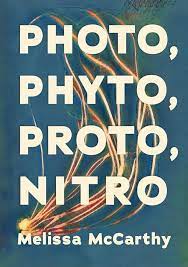Here's news of next month's online gathering, the third of twelve planned for 2024.
If you're on the guest list you'll automatically get a zoom link at 6pm on the day. If you're not on the guest list but would like to be, please leave your FULL NAME and EMAIL ADDRESS in the comments section below. And spread the word! It's free to join.
Sunday 24th March at 7pm (UK time)
Join two extraordinary writers for readings and conversation prompted by two very different books.
Lara Pawson
Lara Pawson’s Spent Light is an unclassifable novel-memoir-essay hybrid, examining the hidden lives of objects – toasters, pepper-mills, fridge-freezers, Brazilian gaucho spurs – spinning off wildly into an account of the entire world of resource extraction and forced labour and industrial murder, alongside traditions of craft, reciprocity and affection.
‘Reading Pawson you realise how obedient most writing is, constrained by squeamishness or protocol … Lara Pawson’s writing is brilliant, unnerving and shockingly alive.’
– Miranda France, Times Literary Supplement
‘Spent Light asks us to begin the work of de-enchanting all the crap we gather around ourselves to fend off the abyss – because we’ll never manage that anyway, the book warns, the abyss is already in us. But love is too. There might be no home to be found in objects, but there’s one to be made with other people. I think, in the end, this powerful, startling book is a love letter.’
– Jennifer Hodgson
‘I’m flabbergasted by the naked determination on show here, not to say the talent. Page by page, image by image, association by association, Lara Pawson develops a picture of the world that you won’t be offered anywhere else: stark, unremitting, brilliantly formed and written.’
– M. John Harrison
‘A shocking book. Lara Pawson’s merciless and exquisite prose adorns everyday objects with the violence of history – the savage comedy by which living creatures have become broken, petrified things. I will never look at a toaster or a timer, a toenail or a squirrel, the same way again.’
– Merve Emre
‘Spent Light is, obviously, not comfortable reading, but it is wild, bold writing in league with perfectly clear thinking, and while disturbing it is also, in a satisfyingly dark and absurd way, comic. Shelve it with Lucy Ellmann, Miriam Toews, Jenny Offill; brilliant, disillusioned women in absolute control of glorious prose.’
– Sarah Moss, Guardian (full review here)
‘Pawson, who explored Angola’s forgotten massacre in her first book, In the Name of the People (2014), writes with a grotesque beauty. […] Pawson has created something very much her own here. It’s not fiction, it’s not non-fiction, it’s not memoir and it’s not an essay. What it is is a reminder that everything in this world is connected and that stories are everywhere, even in objects we might otherwise overlook.’
– Susie Mesure, Spectator
Order direct from CB editions here: https://www.cbeditions.com/Pawson2.html
Orla Owen
Orla Owen's third novel Christ On A Bike was published by the award-winning Bluemoose Books on 25th January 2024.
Routinely unnerving, each chapter becomes progressively more uncomfortable as the source of the inheritance comes into question. The novel goes to some startlingly dark places in its exploration of free will and family ties, and what starts as a deceptively engaging light entertainment about sibling rivalry becomes a wild journey into madness, mayhem and murder.
It's only been out for a couple of weeks so no press reviews as yet. But take a look at all the five star reviews on Goodreads! https://www.goodreads.com/en/book/show/200745697 I read it in. asingle sitting and was completely immersed--a brilliant idea, brilliantly realised.
Do join Lara, Orla and myself for an hour of readings and conversation. We look forward to seeing you.
Our next gathering witll be on Sunday 21st April.
Keep the lights on, wherever you are.
David



